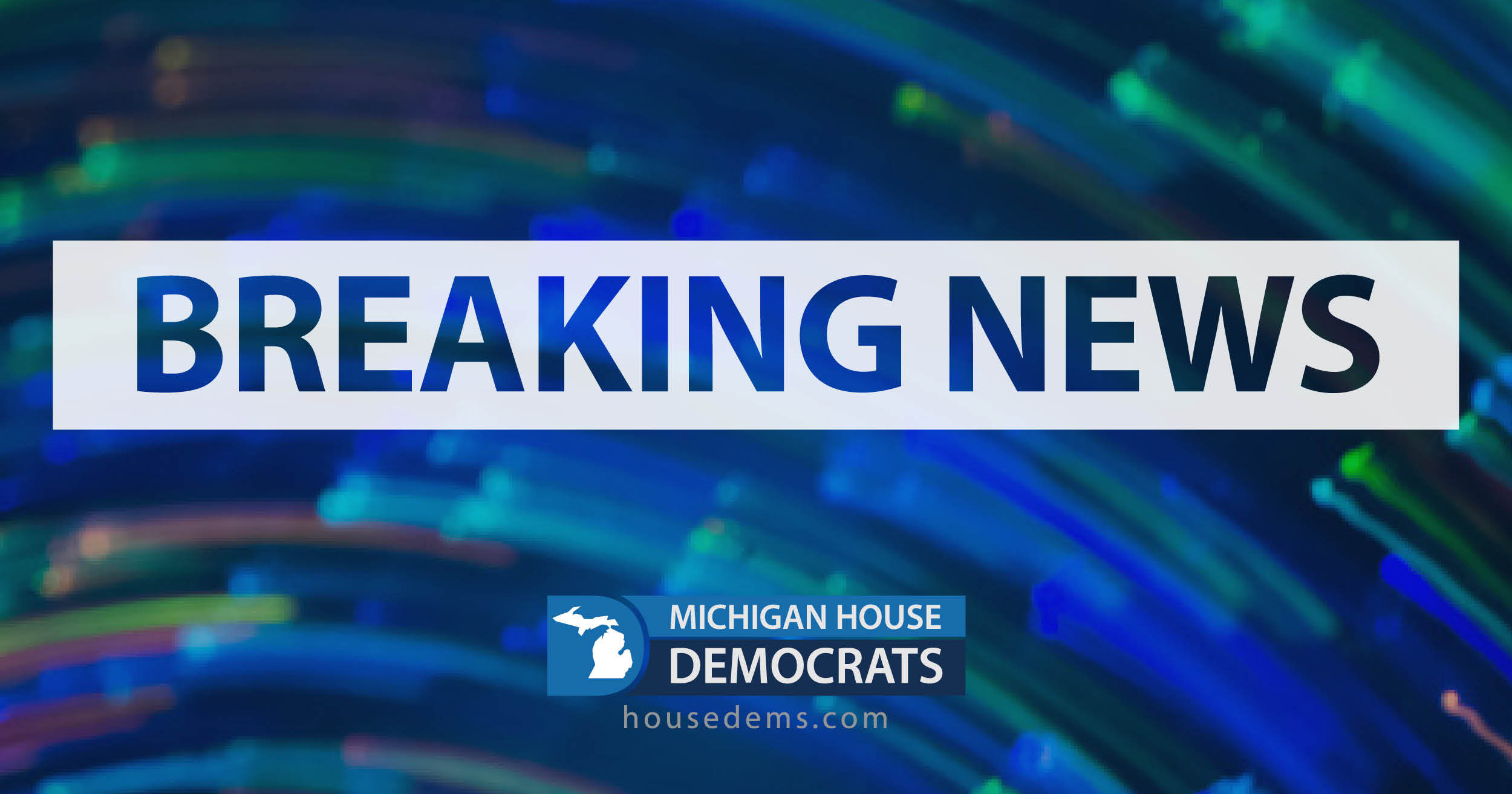- As of July 21, more than 1.8 million Michigan voters had requested absentee ballots, compared to just over 500,000 at the same time in 2016.
- More than 600,000 absentee ballots have already been returned, topping the total number of absentee ballots cast in 2016.
- The package reflects priorities highlighted in the House Democrats’ recently unveiled “Michigan Strong” plan, which outlines, among other priorities, the need to protect and strengthen every Michigander’s right to vote.
LANSING, Mich., July 23, 2020 — A coalition of House Democrats introduced a package of legislation today to make various revisions to Michigan’s election laws. The package includes eight bills which work together to improve ballot access for voters ahead of the upcoming election season.
“Voting is our most fundamental right as citizens of this state and nation, and we should be equipping election officials and communities with every tool in the toolkit to ensure no one is disenfranchised,” said state Rep. Mari Manoogian (D-Birmingham). “These bills strengthen our democracy from the bottom up so that every eligible voter across Michigan can cast their ballot freely and safely.”
The Michigan Secretary of State’s office is expecting increased voter participation in the upcoming elections in part based on drastic increases in absentee ballot requests. The office reports that as of July 21, more than 1.8 million Michigan voters had requested absentee ballots, compared to just over 500,000 at the same time in 2016. Over 1.8 million absentee ballots have been issued so far, and more than 600,000 already returned; nearly three times the number at the same time in 2016.
“Michigan voters should be able to exercise their right to vote by mail and know that their vote will count,” said Democratic Floor Leader Yousef Rabhi (D-Ann Arbor). “We need to change the law so that arbitrary signature rules and mail delays don’t disenfranchise voters and undermine confidence in the democratic process. Millions of Michiganders voted to expand voting rights in 2018, and this legislation will help us live up to that vision of a more inclusive democracy.”
The package was developed in coordination with Secretary of State Jocelyn Benson and the Michigan Department of State.
”Michigan voters made it clear in 2018 that they wanted to see voting rights in our state when they overwhelmingly approved Proposal 3,” said Secretary Benson. “Our election laws need to be modernized to keep up with that expansion. This package will help ensure every voice is heard and every vote is counted, and I’m looking forward to working with our state Legislature to enact it into law.”
A summary of the legislation is included below:
- HB 5985 (Pagan): Requires election officials to maintain a permanent absent voter list.
- HB 5986 (Pagan): Allows 16- and 17-year-olds to pre-register to vote at a Secretary of State office in tandem with obtaining their driver’s license. Under this bill, a person who pre-registers to vote will become a registered elector at 17 1/2 years of age and become eligible to vote at the first election after he or she becomes 18 years of age.
- HB 5987 (Guerra): Counts ballots postmarked by Election Day as valid if received within 48 hours of the time polls close. Accepting ballots postmarked by Election Day is already policy in more than a dozen other states, including Alaska, Illinois, and Kansas.
- HB 5988 (Guerra): Ensures reimbursement to local municipalities for their election-related mailing costs, such as sending voter registration cards, absent Voter ballot applications, and absent voter ballots, so long as they include pre-paid postage on all return envelopes.
- HB 5989 (Manoogian): Enables city and township clerks to move polling places as soon as 15 days before an election when there is a declared state of emergency or disaster. Currently, municipal clerks may not move a polling location within 60 days before an election unless the location is damaged and physically dangerous to voters.
- HB 5990 (Hammoud): Allows for the tolling of the 180-day signature gathering timeframe during a declared state of emergency for constitutional amendments and ballot initiatives only.
- (B. Carter): Allows the initiatives/amendments to be carried over between gubernatorial elections.
- HB 5991 (Rabhi): Creates a procedure to notify voters and give them a chance to correct a signature problem with their absent voter ballot or ballot application. Almost a dozen other states allow voters to correct signature problems with absentee ballots.

